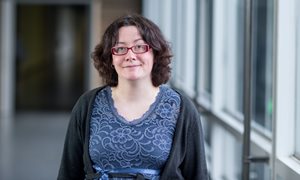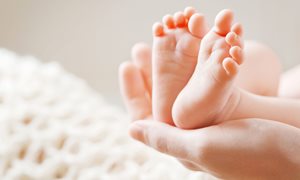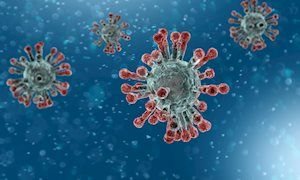 The majority of children with cancer show great psychosocial resilience during treatment. However, one in five children have persistent behavioral problems that interfere with their daily functioning. Medical Psychologist Simone Sint Nicolaas found out how to screen early for risk factors associated with these problems. As a result, families who need this can be provided with timely extra care. On 21 March 2018, Sint Nicolaas defended her thesis in Nijmegen.
The majority of children with cancer show great psychosocial resilience during treatment. However, one in five children have persistent behavioral problems that interfere with their daily functioning. Medical Psychologist Simone Sint Nicolaas found out how to screen early for risk factors associated with these problems. As a result, families who need this can be provided with timely extra care. On 21 March 2018, Sint Nicolaas defended her thesis in Nijmegen.
Risk and protection
In her study, Sint Nicolaas monitored more than 200 children from the moment they were diagnosed with cancer. She examined the risk factors associated with psychosocial problems and the factors protecting against these. Her aim was to identify families with less resilience at an early stage, so that they can be provided with extra care.
Sint Nicolaas showed that parental stress when raising a sick child is the main risk factor for psychosocial problems. Other factors are passive coping strategies and feelings of helplessness with regard to the child’s illness. If parents are able to see the positive side of their child’s illness and enjoy enough social support from their environment, their children are better protected against psychosocial problems.
Screening
It is shown that early screening and interventions based on the risk factors found is possible. Sint Nicolaas translated the Psychosocial Assessment Tool, an existing screening instrument from the United States, for use in Dutch practice. She says: “Early screening for psychosocial resilience can help provide families who need this with extra care. It is important to identify not only families at risk, but also families we do not expect to need more psychosocial care than currently provided in order for them to have as few long-term negative psychosocial effects of treatment as possible. As a result, standard care can be sufficient for families with enough resilience to adjust adequately.”
Parents
An important finding of this study is that parents play an important role in boosting resilience in their child. Treatments aimed at improving knowledge, networks, skills and trust in parents raising a sick child are very important in terms of boosting resilience. Sint Nicolaas says: “The majority of children in my study showed great psychosocial resilience during the treatment process. That is good news for children diagnosed with cancer and their parents.”
Related news items

Giesje Nefs receives fellowship from the Diabetes Fund
10 January 2022 Diabetes technology - such as insulin pumps, closed loop systems, sensors, smart insulin pens - is evolving enormously. But there are also concerns, or false expectations. Giesje Nefs wants to gain more insight into this so she can help people make their choice. go to page
Newborn screening in sight through the discovery of novel disease biomarkers by new technique
8 July 2021New biomarkers that can be used in the newborn screening protocol, also known as the neonatal heel prick, Karlien Coene and colleagues joined forces with scientists at the Radboud University’s FELIX laser laboratory. They published their findings in The Journal of Clinical Investigation.
go to page
Experts on metabolic diseases still an unknown major problem...
1 July 2020 Six Dutch UMCs and a patient association contribute to treating and solving this major, often unknown, problem. Timely detection of metabolic diseases is vital. Therefore, Radboudumc is also part of the consortium “United for Metabolic Diseases”. go to page
Cooling strategies for COVID-19 health personnel to attentuate PPE-induced heat strain
11 June 2020 Radboudumc develops infographic with cooling information go to page
Cognitive behavioral therapy reduces severe fatigue in patients with advanced cancer during treatment
28 January 2020 In Annals of Oncology, RIHS researchers Hanneke Poort, Marlies Peters, Winette van der Graaf, Ria Nijhuis-van der Sanden and colleagues showed significant effects of cognitive behavioral therapy on fatigue in patients with advanced cancer during treatment with palliative intent. go to page
